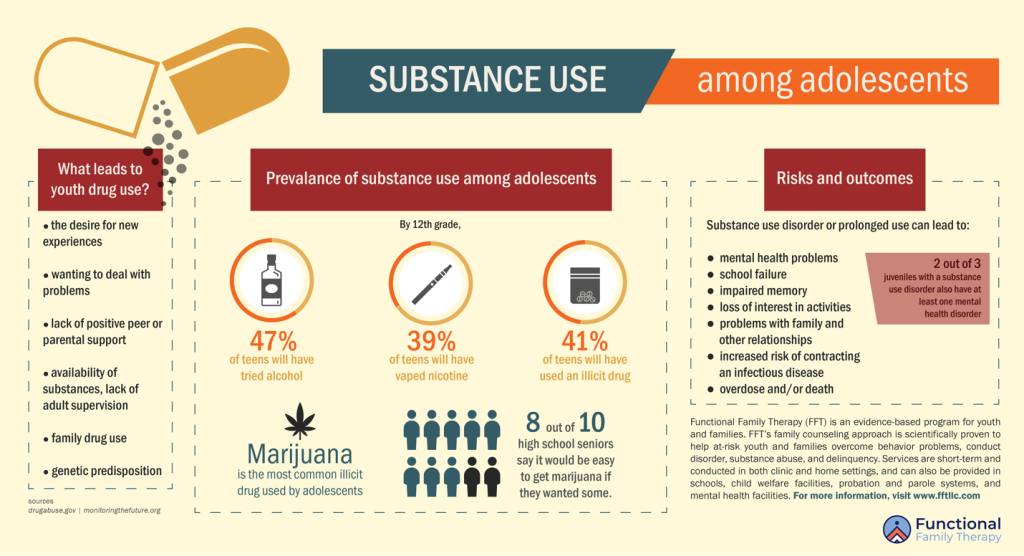
Facing the reality of having a drug addict son is an ordeal fraught with heartache, confusion, and relentless hope for a turnaround. Many parents find themselves in this harrowing situation, oscillating between the fierce desire to help their child and the crushing weight of despair when efforts seem fruitless. The question "when do I give up on my drug addict son?" is one that no parent wants to entertain, yet it emerges from the shadows during moments of overwhelming difficulty. This guide seeks to navigate these turbulent waters, offering a beacon of support and understanding for those enduring the pain of watching their son battle with addiction.
Addiction, a relentless disease, does not discriminate, tearing through the fabric of families and leaving a trail of destruction in its wake. The journey of a drug addict son is complex, marked by challenges that test the bounds of parental love and endurance. It's a path that no one chooses, yet countless families find themselves on it, searching for ways to guide their loved one towards recovery while grappling with their own feelings of fear, guilt, and sometimes, despair.
This article aims to explore this delicate question, providing insights and compassionate guidance on how to deal with a drug addict son. It emphasizes that 'giving up' is not about severing ties or withdrawing love, but about finding a balance between offering help and safeguarding one's well-being. Through understanding, setting boundaries, and accessing support, parents can navigate this difficult journey, always holding onto hope for their son's recovery.
Recognizing the limits of your influence over your drug-addict son is a crucial, albeit challenging, step for parents engulfed in the turmoil of addiction. It's a profound realization that, despite your deepest desires to save your child, addiction is a complex disease that ultimately lies within their own battle to fight. This understanding doesn't diminish your role; rather, it highlights the importance of focusing your efforts where they can be most effective while also taking care of your own well-being.
Addiction often leaves parents feeling powerless, questioning every past decision and wondering what more they could do to steer their son toward recovery. It's essential to acknowledge that while you can offer love, support, and resources, you cannot control your son's decisions or his journey to recovery. This acceptance is not an admission of defeat but a necessary shift in perspective that can prevent you from being consumed by guilt and despair.

Setting healthy boundaries becomes imperative in this context. Boundaries help protect your emotional and physical well-being, ensuring you do not enable your son's addictive behaviors. They also serve as a clear indication to your son that while his family loves and supports him, they will not facilitate his addiction.
Moreover, recognizing your limits opens the door to seeking external support and guidance. Professional therapists, support groups for families of addicts, and educational resources can provide the knowledge and emotional backing needed to navigate this challenging journey. Embracing these supports can empower you to make informed decisions, offering your son the best possible chance for recovery while maintaining your own health and resilience.
Exploring ways to help your son who is struggling with drug addiction is a journey marked by compassion, patience, and perseverance. As parents, the desire to see your child break free from the chains of addiction is profound. Understanding that your support plays a crucial role in his recovery, there are several approaches you can take to facilitate this process, always keeping in mind the delicate balance between helping and enabling.
Firstly, educating yourself about addiction is vital. Recognizing addiction as a disease rather than a moral failing can change your perspective and approach toward your son. This knowledge empowers you to engage in open, non-judgmental conversations about his struggles and the impact of his addiction on his life and the family.
Encouraging professional treatment and expressing your support for such steps is another critical way to help. Whether it's researching drug rehab facilities, accompanying him to a doctor's appointment, or exploring therapy options together, your active involvement can motivate him to take the first step toward recovery. Highlighting stories of recovery and the possibilities of a life beyond addiction can also inspire hope.
Moreover, consider the power of intervention if your son is resistant to seeking help. Professional interventionists can assist in organizing a structured and supportive meeting aimed at encouraging your son to accept treatment.
Lastly, reinforcing your unconditional love and support throughout his journey is paramount. Let him know that while you do not support his addiction, you will always stand by him as he works towards recovery. This distinction is crucial in helping him feel valued and understood rather than judged and isolated.
In exploring ways to help your son, remember that your support, understanding, and encouragement are invaluable assets on his path to recovery.

Dealing with a drug addict son requires a blend of emotional resilience and practical strategies to navigate the complex journey of addiction. It's a path filled with challenges that demand patience, understanding, and proactive measures to support your son while safeguarding the well-being of the entire family.
Educating yourself about addiction and recovery options is another practical strategy. Knowledge about the nature of addiction, treatment modalities, and resources available can guide your efforts in helping your son. This includes understanding the various aspects of rehab programs, therapy options, and support networks available for both your son and your family.
Moreover, preparing for setbacks is crucial. Recovery is often a non-linear process, marked by successes and relapses. Maintaining hope and continuing to offer support during these times can make a significant difference in your son's journey toward recovery.
In dealing with a drug addict son, balancing emotional support with practical strategies can pave the way for healing and recovery for both your son and your family.
Setting boundaries and considering tough love are critical aspects when dealing with a drug addict son. These measures are not about giving up on your child but about protecting your well-being and encouraging your son to take responsibility for his actions. Understanding when and how to implement these strategies is essential for the health of the entire family.
Boundaries are necessary to prevent enabling behaviors. They delineate what is acceptable and what isn’t, such as not tolerating drug use in the house or refusing to provide financial bailouts for drug-related issues. These limits are crucial for maintaining a safe and supportive home environment while also sending a clear message to your son that his addiction cannot dictate the family's dynamics.
Tough love comes into play when conventional support and encouragement do not lead to positive changes. This might include taking a step back to allow your son to face the natural consequences of his actions, a decision that can be incredibly challenging for any parent. It’s about letting him experience the real-world implications of his addiction, which can be a powerful motivator for seeking change.
Implementing tough love requires a delicate balance, ensuring that your son knows this approach stems from a place of love and concern for his health and future. It’s crucial to communicate that your actions are not a rejection but a firm stance against the destructive patterns of addiction, aiming to steer him toward recovery and self-accountability.
Navigating the legal and financial challenges that arise from having a drug addict son is an aspect many families face, often feeling unprepared for the complexities involved. Legal issues may include arrests, court cases, or other legal ramifications of drug use, which not only strain emotional well-being but also impose significant financial burdens. Financial challenges extend beyond legal fees to include the cost of treatment programs, potential loss of income, and debt accumulation.
To manage these challenges, it's essential to become informed about your legal rights and options. Seeking advice from a legal professional who has experience with drug-related cases can provide clarity on the best course of action, whether it involves defense strategies or navigating the possibilities of drug courts that focus on rehabilitation rather than punishment.
Financially, setting a clear budget and identifying resources can help manage the costs associated with recovery. Explore insurance coverage for treatment programs, inquire about sliding scale fees or payment plans, and research state or federal aid programs designed to support individuals battling addiction.
Moreover, consider the long-term financial planning for your family, including setting aside emergency funds and possibly consulting with a financial advisor to mitigate the impact of your son's addiction on your family's financial security.
Addressing these legal and financial challenges requires a proactive approach, seeking expert advice, and utilizing available resources to safeguard your family's future while supporting your son's journey to recovery.
Finding support and resources is a crucial step for parents navigating the challenging journey of having a drug-addict son. It's essential to remember that you're not alone, and a wealth of resources is available to provide guidance, emotional support, and practical advice. Engaging with support groups specifically designed for families of addicts can be incredibly therapeutic. These groups offer a safe space to share experiences, learn from others who are in similar situations, and gain insights into dealing with the complexities of addiction.
Additionally, professional counseling for family members can help address the emotional toll and provide strategies for effective communication and boundary-setting. Therapists specializing in addiction can offer personalized guidance and support for coping with the challenges your family faces.
Online resources and local community organizations also provide valuable information on treatment options, legal advice, and financial aid possibilities. Websites dedicated to addiction recovery and support can offer articles, forums, and contact information for local support services.
Remember, seeking support is a sign of strength. It not only aids in your own well-being but also equips you with the knowledge and resources to offer the best possible support to your son. Leveraging these resources can make a significant difference in your family's journey through recovery.
In confronting the heart-wrenching reality of having a drug addict son, it's clear that the journey is fraught with emotional upheaval, tough decisions, and the constant quest for balance between support and tough love. This guide has navigated through the complex layers of understanding addiction, recognizing the limits of parental influence, and the critical importance of setting boundaries, all while emphasizing the necessity of seeking external support and resources. It underscores that dealing with a drug-addicted son is not a solitary journey—there are avenues for help, communities of support, and strategies that can aid in navigating this challenging path.

The journey of recovery is unique for every family, marked by its highs and lows. Yet, the underlying message is one of hope and resilience. Implementing tough love, understanding when to set boundaries, and managing the legal and financial repercussions are steps on a path toward healing. Most importantly, finding support and resources reaffirms that you are not alone in this struggle.
As we conclude, remember that your strength, love, and commitment to seeking help for your son and you are powerful catalysts for change. It's about taking one day at a time, being kind to yourself, and holding onto hope for a better tomorrow. The road to recovery may be long and winding, but it's paved with possibilities for redemption and renewal.
If you're navigating the challenging journey of supporting a drug addict son, remember, you're not alone. Seeking help is a sign of strength and the first step towards healing for both you and your son. We encourage you to reach out to professional counselors, join support groups, and explore the resources available to you and your family. These steps can provide the guidance, support, and understanding you need during this difficult time. Don't hesitate to take action today—your efforts can make a significant difference in your family's journey towards recovery and hope. Reach out, seek support, and take the first step toward a brighter future.